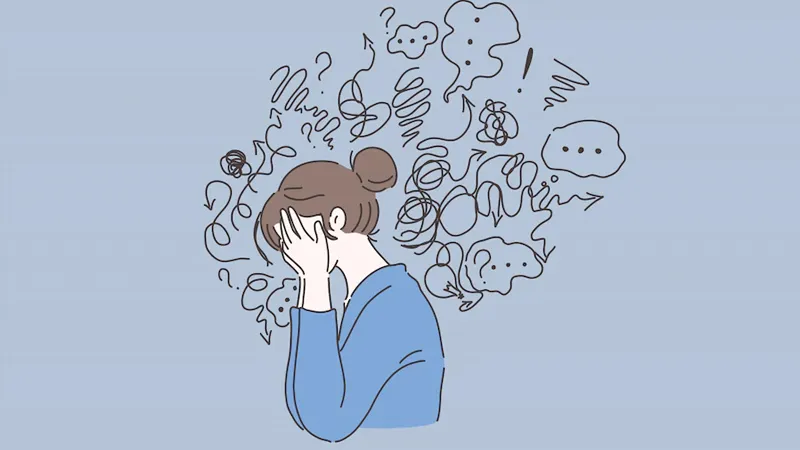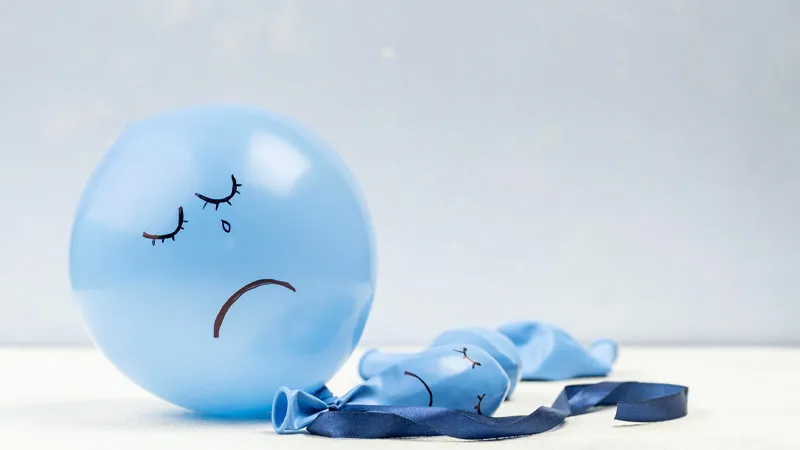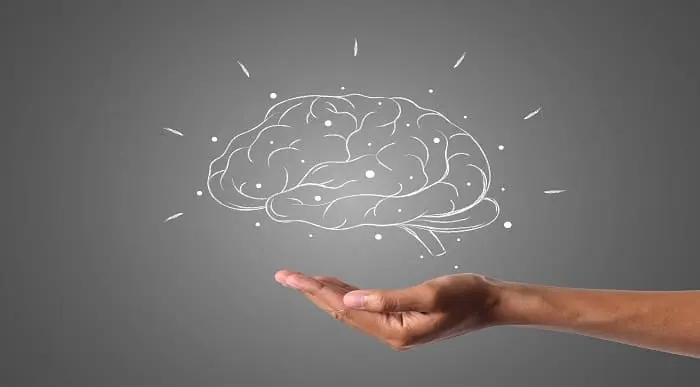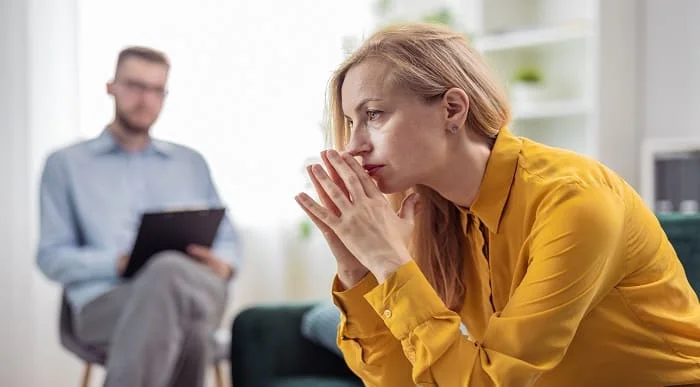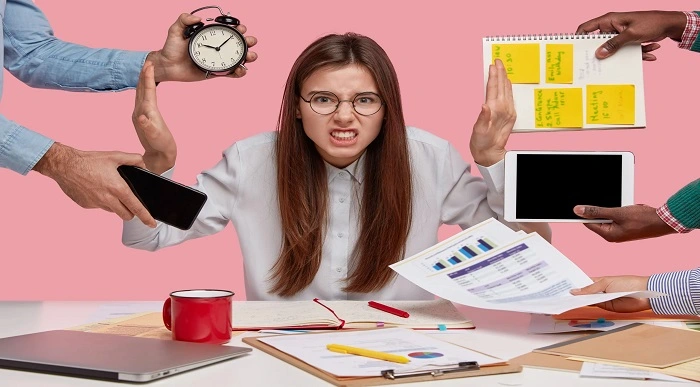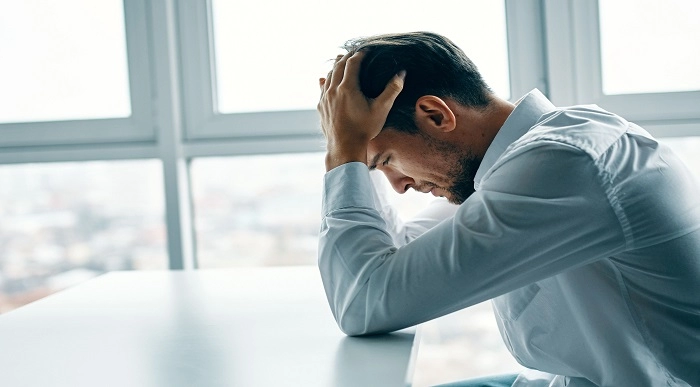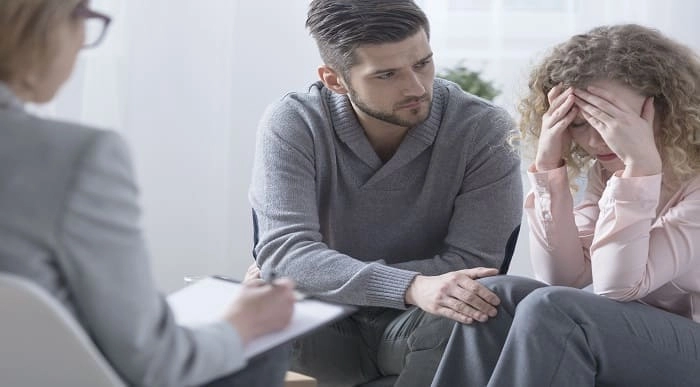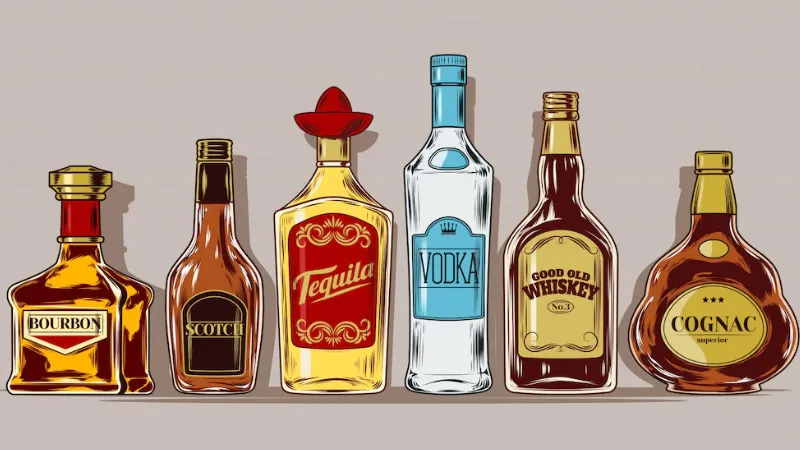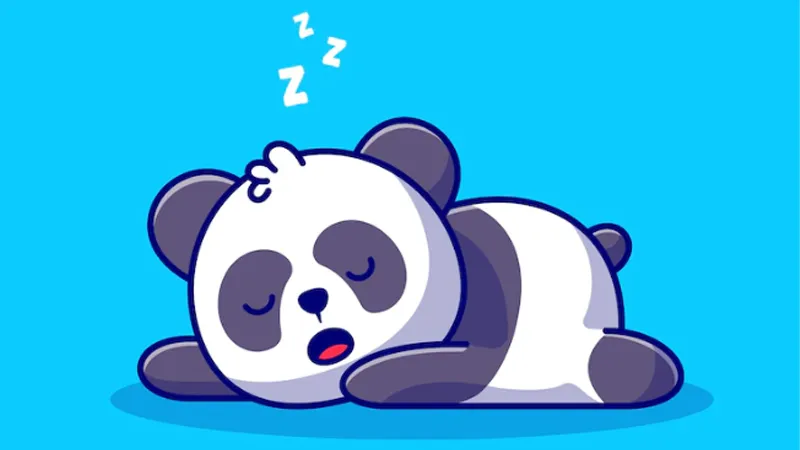Counselling & Psychology
How to Stop Being Depressed? A Complete Guide
It’s normal to feel gloomy some days, but if these feelings continue for several weeks or months, you can be depressed. So, today, we’re going to tackle a question that is bothering a significant chunk of people- “How to stop being depressed?” Further, you cannot stop it by making a few simple lifestyle adjustments. The most effective method of treating depression is a mix of lifestyle adjustments and medical care.
But there are other approaches to treating depression. We will cover all of these in-depth today.
So, let’s get going.
Table of Content
What is Depression?
Depression is a serious mental illness. It can have an impact on how you-
- feel,
- act, and
- think
Although depression is a widespread condition among older persons, clinical depression is not a typical part of the ageing process.
Despite having more illnesses or physical problems than younger individuals, statistics demonstrate that most older folks are content with their life.
However, if you have had depression as a child, you are more likely to suffer depression as an adult.
Older individuals may suffer from one of several types of depression
| Major Depressive Disorder/Clinical Depression | It involves symptoms that last at least two weeks and impair a person’s ability to do their typical daily activities, such as sleeping, eating, or working. |
| Persistent Depressive Disorder (Dysthymia) | It is a depressed state that lasts more than two years, yet the individual may still be capable of carrying out daily duties, unlike someone suffering from Major Depressive Disorder. |
| Substance/Medication-Induced Depressive Disorder | It is depression caused by the use of medications such as alcohol or pain relievers. |
| Depressive Disorder Induced by a Medical Condition | It is depression caused by some other condition, such as heart disease or multiple sclerosis. |
However, depression is not limited to the types described above. Take a look at the following list:
| Perinatal Depression | Perinatal depression occurs when a woman suffers from significant depression during or after her pregnancy (postpartum depression). |
| Seasonal Affective Disorder or SAD | SAD comes and goes with the seasons, usually beginning in the late fall and early winter and ending in the spring and summer. |
| Depression with Symptoms of Psychosis | It is a severe form of depression characterised by psychotic symptoms such as delusions (disturbing, false fixed beliefs) or hallucinations (hearing or seeing things that others do not see or hear) |
| Bipolar Disorder (formerly known as manic depression or manic-depressive illness) | Individuals with bipolar disorder (formerly known as manic depression or manic-depressive illness) also have depressive spells in which they feel gloomy, indifferent, or hopeless and have a very low activity level.
However, a person with bipolar disorder also experiences manic episodes or exceptionally elevated moods in which the individual may feel particularly cheerful, irritable, or “up,” with a significant increase in activity level. |
Signs & Symptoms
You may be suffering from depression if you have been experiencing some of the following signs and symptoms most of the day, virtually every day, for at least two weeks:
| A persistently depressed, nervous, or “empty” mood | Feelings of despair or pessimism | Irritability, frustration, or a sense of restlessness |
| Guilt, worthlessness, or feeling powerless | Loss of enjoyment or interest in hobbies and activities | Low energy, tiredness, or a sense of being “slowed down” |
| Difficulties concentrating, recalling information, or making decisions | Sleeping difficulties, early morning awakenings, or oversleeping | Changes in appetite or unintentional weight loss |
| Suicide attempts or thoughts of death or suicide | Aches and pains, headaches, cramps, or digestive problems that do not go away despite treatment |
Not everyone who is depressed exhibits all of the symptoms. Some people have only a few symptoms, while others have numerous.
A diagnosis of serious depression requires several persistent symptoms in addition to low mood, although persons with only a few – but unpleasant – symptoms may benefit from treatment as well.
The degree, frequency, and duration of symptoms will vary based on the individual and his or her specific condition. Symptoms may also differ according to the stage of the illness.
What Causes Depression?
We’re not entirely certain. It could be a mix of factors, such as changes in brain chemicals or hormones.
Hormones are substances produced by the body. Some hormones can have an effect on the areas of the brain that regulate emotions and mood.
Genes may also have a role in depression. Genes are components of your body’s cells that contain instructions for how your body grows and functions. Parents pass on their genes to their children.
Depression is more likely among persons who have depressed family members. This is referred to as a familial history of depression.
How to Stop Being Depressed?
Overcoming depression of even the most severe cases can be addressed. The earlier therapy begins, the better the outcome.
Depression is usually treated with the following:
|
— Or a combination of the two |
|
Medications
Antidepressants are drugs that get regular usage to treat depression. They may help your brain utilise specific hormones that improve your mood or stress better.
You may need to try multiple antidepressant medications before finding one that relieves your symptoms while causing manageable side effects. A drug that has previously helped you or a close family member will frequently be evaluated.
There are numerous types of antidepressant drugs that are regularly utilised. Antidepressants known as selective serotonin reuptake inhibitors (SSRIs) are often recommended to older people.
A psychiatrist, mental health nurse practitioner, or primary care physician can prescribe drugs and assist in monitoring their potential negative effects.
Antidepressants take time to work – typically 4 to 8 weeks – and symptoms like sleep, appetite, and attention issues sometimes improve before they can boost your mood, so it is critical to give medication a chance before concluding whether it works.
If you start taking antidepressants, do not discontinue taking them without first consulting your doctor. People who take antidepressants may feel better for a while but then stop taking the prescription on their own, and the depression returns.
When you and your doctor decide it’s time to stop taking the medicine, usually after 6 to 12 months, the doctor will help you gradually and securely reduce your dose. Stopping them suddenly can result in withdrawal symptoms.
A Warning
Children, teenagers, and young adults under the age of 25 may have an increase in suicidal thoughts or behaviour when taking antidepressants, particularly in the first few weeks or when the dose is altered. Patients of all ages using antidepressants should be thoroughly monitored, particularly during the initial few weeks of medication.
If you are pregnant, expecting to become pregnant, or breastfeeding and are thinking about taking an antidepressant, talk to your doctor about possible elevated health risks to you or your unborn or nursing child.
Psychotherapy
Counselling, and psychotherapy, which is otherwise known as “talk therapy,” can assist a person in identifying and changing troublesome emotions, thoughts, and behaviour.
It may be performed with the assistance of a psychologist, licenced clinical social worker (LCSW), psychiatrist, or other qualified mental health care practitioner.
Cognitive-behavioural therapy (CBT) and interpersonal therapy are two evidence-based techniques for the treatment of depression (IPT).
Now comes the question, what if none of these work? Well, there’s a solution for that too.
Brain Stimulation Therapies
Brain Stimulation Therapies are normally explored only when other therapies have failed to improve a person’s ailment. However, among them are Electroconvulsive Therapy (ECT) or Repetitive Transcranial Magnetic Stimulation (rTMS).
Electroconvulsive Therapy (ECT)
ECT is a procedure in which electrodes are placed on the patient’s head to allow a safe, mild electric current to travel through the brain.
Medically reviewed research shows:
| People suffering from severe depression who have not improved with prior therapies may benefit from ECT. |
| Electroconvulsive therapy has the potential to be an effective treatment for depression. ECT can even be utilised as a first-line solution in some severe cases where a quick response is required, or drugs cannot be administered safely. |
| ECT was once purely an inpatient technique, although it is now frequently performed on an outpatient basis. For two to four weeks, the treatment comprises of a series of sessions, often three times each week. |
| Some adverse effects of ECT include confusion, disorientation, and memory loss. Usually, these adverse effects are temporary, although memory issues might last for months, especially during the treatment cycle.
Modern ECT is safe and effective for the majority of patients due to advancements in ECT equipment and procedures. Before providing your informed consent to undergo ECT, consult with your doctor to ensure you understand the potential benefits and hazards of the treatment. |
| ECT is not unpleasant, and the electrical shocks are not felt. Before beginning ECT, the patient is sedated and given a muscle relaxant. The patient is awake and alert one hour after the therapy session, which only takes a few minutes. |
Repetitive Transcranial Magnetic Stimulation (rTMS)
Repetitive transcranial magnetic stimulation (rTMS) consists of the use of magnets to affect the brain. rTMS does not require anaesthesia and only targets particular parts of the brain to help minimise the side effects of ECT, such as exhaustion, nausea, and memory loss.
Can Depression be Prevented?
So, can you stop being depressed? Why just stop it when you can prevent it in the first place.
Many people question if depression can be avoided and how they might reduce their chances of developing depression, or prevent it from coming back once they are treated.Although most episodes of depression cannot be avoided, healthy lifestyle modifications can have long-term mental health benefits.
Here are a few things you can do to prevent depression (or even when you’re depressed):
Physical Activity & Nutritious Diet
Engage in physical activity (at least 20 minutes to 30 minutes each day) and consume a nutritious, well-balanced diet. This may aid in preventing ailments that can lead to disability or sadness.
Some diets, such as the low-sodium DASH diet, have been demonstrated to lessen depression risk.
Also, some people who are depressed may not feel like eating and some people may overeat. However, what you eat might have an impact on your mood and energy levels.
So, if you suffer from depression, you must ensure that you eat properly. For the majority of individuals, this means eating plenty of fruits, vegetables, and whole grains.
Limit simple carbs and sugary foods, such as “junk” food and desserts. Don’t forget to drink plenty of water to keep hydrated. When possible, avoid sugary and caffeinated beverages.
Avoid Alcohol, Nicotine or Any Other Harmful Substances
The morning after drinking is one of the times when alcohol’s impact on mental health is most visible, especially if you drank excessively the previous day, whether over a long or short period.
Alcohol is a depressive that alters the normal levels of happiness chemicals in your brain, such as serotonin and dopamine.
This implies that, while you may feel a ‘boost’ the night before, you will be low in these same chemicals the next day, which may cause you to feel nervous, down, or depressed.
The same goes for nicotine or any other harmful substances. They will add layers of negative impacts on your health to ensure your depression remains untreatable.
Proper Sleep
Sleep may swiftly affect every other aspect of your life, especially if you don’t get enough of it.
Depression and sleep are inextricably linked since a lack of sleep can cause or contribute to depression symptoms, and depression can induce sleep problems, limiting your capacity to function on a daily basis.
Keep a consistent bedtime and waking-up schedule, avoid naps, and get into strong light immediately after waking up to communicate to your brain that it’s time to start the day to maintain a healthy sleep cycle.
Limiting your caffeine consumption (like tea or coffee), as well as obtaining some activity during the day, will help you sleep faster each night.
Maintain Contact
Even if you are only suffering from minor depression, you may find yourself withdrawing from others, avoiding social situations, or not wanting to bother others with your emotions.
Finding a solid support system and spending time with the people you care about is one of the most difficult but most beneficial things you can do to get yourself through depression.
Schedule visits with friends and family, or organise a lunch date with a coworker, so you have a definite time and place where you can lean on others when you’re feeling down.
Some of these people may have experienced depression themselves and may be able to relate to you on the issue, give suggestions of what has helped them in the past, or simply lend an open ear.
Enjoy the Sun
Getting outside into the sunshine is another aspect of self-care that is easy to miss when all you want to do is sit on the couch!
Sunlight and darkness stimulate distinct hormones in your brain, and spending too much time indoors might have a negative impact on your mood.
Further, along with increasing serotonin levels, spending time outside can aid enhance Vitamin D synthesis, lower blood pressure, create stronger bones, and allow you to sleep better.
Engage in Fun Activities
You probably had a lot of interests, hobbies, and favourite activities that took your free time before you became depressed. Even if you’ve recently lost interest in certain topics, that doesn’t indicate your enthusiasm has vanished.
Even if you don’t feel like it or are too tired to do anything, try to spend some time doing the activities that used to bring you joy.
Cooking a wonderful meal, creating artwork, listening to music, journaling, or even working on your car could be examples of this.
You will eventually enjoy these hobbies again and feel more like yourself each day.
Stay in Touch with Family and Friends
Don’t feel embarrassed to tell your loved ones about your condition. Instead, you’ll always find that they have your best interest in their mind and will help you through all your difficulties.
Consider Joining a Support Group
Meeting other individuals who understand your situation can be beneficial, especially if you are feeling isolated or lonely. Ask your doctor or contact Mind, Anxiety UK, SANE, or Rethink Mental Illness to find a local support group.
Challenge Negative Thoughts
A large part of the battle against depression is mental — altering your way of thinking. When you’re depressed, you tend to jump to the worst-case scenario.
Use logic as a natural depression therapy the next time you’re feeling down about yourself.
You may believe that no one likes you, but does evidence support this? You may believe you are the most worthless person on the globe, but is this actually the case?
It takes practice, but with time, you will be able to regulate your negative ideas.
FAQs
How do most people cope with depression?
One of the most important things that help depression- don’t cut yourself off from your family. Instead, make contact with loved ones and establish a solid support network for yourself. Exercise is a terrific habit for anybody to develop, but it’s crucial for those with depression in particular.
Is depression a lifelong condition?
For many individuals, major depressive disorder (MDD) may be a chronic or even lifelong condition.
What is mentally ill?
A wide variety of mental health conditions—disorders that impact your emotions, thinking, and behaviour—are referred to as mental illnesses, sometimes known as mental health disorders.
Depression, anxiety disorders, schizophrenia, eating disorders, and compulsive behaviours are a few examples of mental illnesses.
Conclusion
Depression is a condition that can be identified and treated. There’s no need to suffer in silence, thinking on and on “How to stop being depressed?” or to try to determine whether what you’re experiencing is depression.
Your primary care physician can help you find a mental health professional and medical advice. One final important thing you can do to help yourself get through a difficult situation is to be kind to yourself. Further, you should remember that it is not your fault that you are depressed.
Be your own ally and show yourself plenty of compassion as you work through difficult situations and days when nothing seems to make you feel good. Depression is a highly treatable disorder, and you can overcome it.
What to Read Next:
- What is not a major field in psychology?
- Trainee Psychological Wellbeing Practitioner Interview Questions and Answers
- Psychological Bullying by Neighbors – How to Defense and STOP Them
- How to Become a Child Psychologist UK
- How to Become a Physiotherapist – Step by Step Guide
- What’s the Difference Between Counselling vs Psychotherapy



